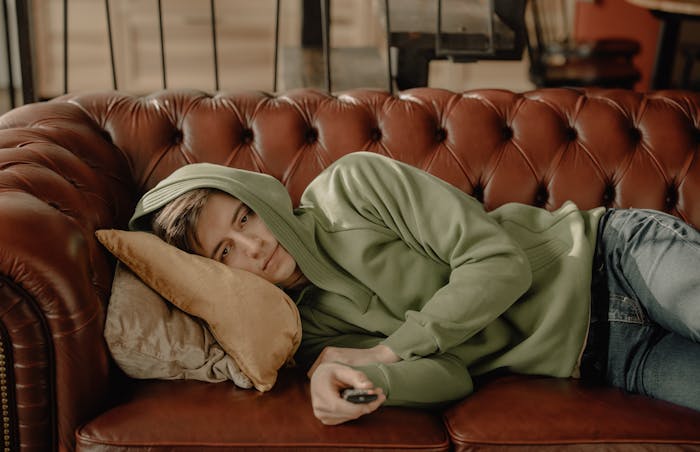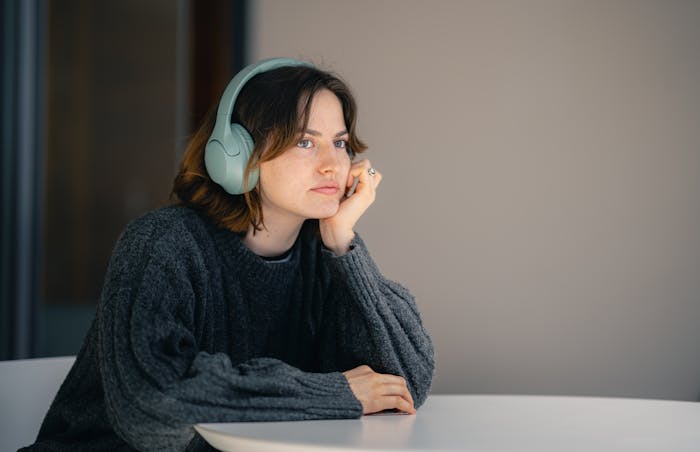Rehabilitation is the process in which individuals work toward overcoming their addiction, learning to cope with triggers and cravings, as well as changing patterns in behaviour that are associated with addiction (also known as a substance use disorder) in general.
In most cases, this is an extremely fulfilling process, in which an individual commits a lot of time, effort, and motivation to themselves and their health.
Especially in a specialised rehabilitation centre, individuals will spend their time in various therapies and treatment programmes, and there may be little time for anything else.
However, this is not to say that every hour of the day is filled with rehabilitative activities. In most cases, individuals will be assigned free time or reflection time in which they can choose to do a variety of self-care exercises or pursue something more creative.
This is what this blog post aims to cover: showing how an individual can spend their free time in rehabilitation creatively and not get stuck in a ‘recovery rut’ which may impede their progress and lead to a relapse in some cases.

Though not every individual going through rehabilitation will experience this, it is still important to consider how best to deal with boredom when progressing through a treatment programme.
As mentioned above, it may be more common for individuals in specific rehab centres to struggle with boredom, though individuals in outpatient care may also experience this.
One study categorised boredom in rehabilitation into ‘boredom proneness’ and ‘sensation seeking’ – features that they found appeared more commonly in individuals who had struggled with a drug addiction in the past (1).
They found that, in their small sample, individuals who had a history of drug addictions and abuse were more likely to report a higher proneness to boredom, and that this was often followed by sensation seeking i.e., the desire to engage in something stimulating in order to overcome boredom.
When considering addictive behaviours as a whole, this can be seen in the early stages of addiction, too.
For example, if an individual finds themselves having nothing to do, then an individual struggling with addiction is highly likely to engage in addictive behaviours i.e., consuming substances, in order to overcome this boredom.
This is something that may be carried forward into their recovery and therefore is something that should be focussed on right from the start of their care.
Creative outlets are important!

There is a lot of research that suggests that self-care (and therefore creative thinking and application) is something that is essential to an individual’s time in rehabilitation and recovery (2).
This is because self-care, avoiding boredom, and paying attention to one’s needs is vital for anyone who is looking to get the full experience of recovery and rehabilitation. Substance abuse can be extremely taxing on both the mind and body, so self-care is essential.
However, there are many different interpretations of self-care: What makes a good self-care routine? What counts as ‘self-care’? How can I make a good self-care routine?
To answer these questions, it may be beneficial to think about the different forms of self-care and which may be more beneficial to the individual in question, their needs, and their unique addiction history.
The different types of self-care, as well as how they may be applied to rehabilitation programmes, are outlined in the following few subheadings.
Mental self-care, or care of the mental health, is one of the most common types of self-care that we think about on a day-to-day basis.
By taking care of one’s mental health and challenging negative emotions, an individual can open themselves up to many more beneficial experiences, positive recovery progress, and a higher chance of maintaining their sobriety in the long term.
However, this can also be one of the most challenging parts of self-care, as it requires an individual to think deeply about their mental wellbeing, what factors influence it most, and how best to go about caring for themselves in this manner.
While undergoing a rehabilitation programme, an individual is often already removed from mentally taxing situations and environments that may have worsened their addiction in the past, but it is still important to think about how this could be improved.
In a creative manner, an individual could start a journal about their mental health on a day-to-day basis, taking time to consider how they felt across their day, what influenced this, and how it could have been made better.
This will be a great tool to use during therapy, as well, as it provides the individual with a strong basis on which they may begin to alter negative thought patterns and/or related behaviours.
Relating to the individual’s physical health and wellbeing, paying attention to an individual’s physical self-care needs is often one of the easiest to recognise within oneself.
For example, if an individual has a very manual labour-based career, then they may begin to feel drained or worn out (especially if they are struggling with an addiction on top of this as well).
In these instances, it may be suitable for the individual to take some time off of work – a form of physical self-care.
On a smaller scale, individuals may choose to have quiet nights at home by themselves, perhaps taking a long bath, relaxing on a bed or sofa to watch their favourite TV or movies, or practising other physical self-care such as manicures, face masks, or deep cleaning their hair, for example.
This can also go the opposite way i.e., an individual choosing to take part in physical activities and other programmes that focus on their physical health.
These are all activities and self-care ideas that individuals will be able to access in rehabilitation centres, as well as during outpatient care.
Most centres will be able to assist individuals in these forms of self-care and may even have specific times or places in which these activities can occur.
This is something to discuss with a medical professional before an individual enters a form of rehabilitation or makes any final decisions.
As a more specific form of self-care, social self-care refers to the people and/or groups of people that we surround ourselves with.
During drug rehabilitation, the people that are around an individual can have a huge impact on the effectiveness and efficiency of their recovery.
In a positive case, an individual may be surrounded with supportive friends and family who learn from their loved ones’ sessions, encourage their ongoing learning and recovery, as well as assisting with transportation and accommodation during different stages of their treatment.
In a negative case, an individual in recovery may choose to stay connected with people who may have had a part in worsening their addiction, facilitating it, or providing the substances in general.
This can have serious repercussions, with individuals continuing to engage in negative behaviours or activities that can be triggering for their addiction and may sometimes lead to relapse.
Though often encouraged in residential drug rehab centres, individuals are often limited in their contact to people outside of their centre, meaning that they are often encouraged to keep visitors to a small list.
However, this is something to consider when leaving rehabilitation during aftercare, as this is a sensitive period and may affect the longevity of their sobriety.

Introducing creativity through self-care in drug rehabilitation is a great way to maintain motivation, form a good attitude toward recovery, and make effective progress.
The following subheadings outline the four key benefits of creative self-care in drug rehabilitation in more detail.
By being creative in your free time, taking time to think about how best you would prosper in a rehabilitative environment, and applying this regularly, an individual is likely to gain a higher level of perspective.
This perspective could be about themselves, their situation, or the journey to recovery ahead of them, but in all cases, gaining a greater perspective on the situation can likely be massively motivating to the individual.
This will increase their motivation and attitude toward rehabilitation overall but will also provide them with a better perspective on how far they have come in their journey.
By providing where the individual used to be to where they are in recovery, this may motivate the individual further and lead to greater commitment to their treatment programmes, a greater involvement within these sessions, and a more positive outlook in general.
Rehabilitation is not an easy process, and creativity can alleviate this.
By funnelling an individual’s thoughts and feelings into a creative outlet, this can boost the individual’s emotion regulation – something which is extremely beneficial when going through a journey such as rehabilitation.
Studies have shown that there is a strong link between creativity and the ability to regulate emotions (3), and that this is boosted significantly when including a ‘teacher’, or perhaps a therapist in the case of rehabilitation.
Emotions can play a huge role in drug rehabilitation and recovery as an individual is expected to react differently to the different stages of recovery.
In addition, individuals are often encouraged to think critically and deeply about their history with addiction and the effects it has had on them and those around them.
In many cases, this is an incredibly emotional process for most people, meaning that a strong sense of regulating these emotions can go a long way in an individual’s recovery journey.
Creating something or coming up with something new, especially when it benefits you as an individual and your well-being, is an incredibly empowering feeling.
Addiction as a disorder can often lead to individuals feeling as though they have a lack of control on their life, their behaviours, and their triggers and cravings.
However, if they are able to work on this in other areas, this can spread to their general feeling of power and control over their recovery.
Every individual should feel in control of their recovery, and there is no greater feeling than when this is achieved on one’s own.
Following on from the benefit above, creating something is also incredibly fulfilling.
This will give the individual a strong sense of accomplishment and can often spread into other areas of their recovery, perhaps also boosting their confidence in their treatment programme and renewing their motivation and commitment to their road to recovery.
Something as simple as making a small list of achievements, drawing a small doodle, or playing an instrument for a short period of time are all examples of small achievements and feats of creativity that can lead to a greater feeling of fulfilment and, therefore, boost the individual’s chances of making a full and effective recovery.
To learn more about creativity, self-care, the recovery process and their roles within drug rehabilitation, get in contact with Rehab 4 Addiction to answer any of your questions.
As part of a broad recovery community, we help individuals and their loved ones find the most suitable form of rehabilitation for them, no matter how short or long-term their addiction and its effects may be.
To find out how we can help you or someone you know, give our addiction support hotline a call on 0800 140 4690 today.
[1] Nabilla, S.P., 2018, August. The Relationship between Boredom Proneness and Sensation Seeking among Adolescent and Adult Former Drug Users. In International Conference on Intervention and Applied Psychology (ICIAP) 2018.
[2] Orem, D.E., 1985. A concept of self-care for the rehabilitation client. Rehabilitation Nursing Journal, 10(3), pp.33-36.
[3] Ivcevic, Z. and Brackett, M.A., 2015. Predicting creativity: Interactive effects of openness to experience and emotion regulation ability. Psychology of Aesthetics, Creativity, and the Arts, 9(4), p.480.